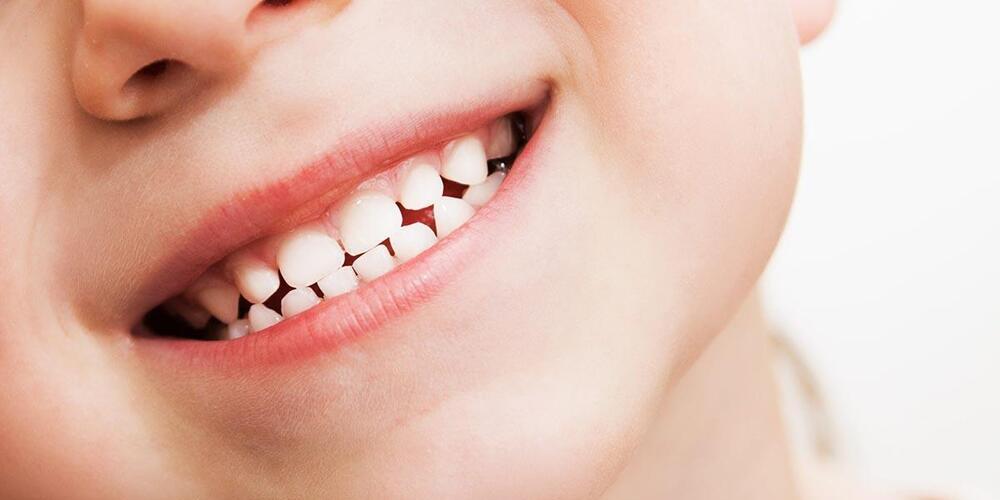
Children’s Dental Fillings: Is It Necessary for Baby Teeth?
Your child’s oral health is an essential part of their overall well-being. Many parents wonder, “Is a filling necessary for baby teeth?” In this comprehensive guide, we will discuss dental fillings for children, their importance, and the treatments applied to baby teeth. In modern dentistry, filling baby teeth is a common, safe, and highly effective procedure to protect your child’s dental health.
Importance of Baby Teeth and the Need for Fillings
Baby teeth serve as guides for permanent teeth, ensuring they erupt in the correct position. If a baby tooth decays and is left untreated, it can cause pain, infection, and long-term damage to developing permanent teeth. Cavities in baby teeth should not be ignored, as they play a crucial role in speech development, proper chewing, and jaw growth. Premature loss of baby teeth can lead to misalignment issues and an increased need for orthodontic treatment in the future.
Causes of Cavities in Children
Several factors contribute to the formation of cavities in baby teeth, including:
- Inadequate brushing habits and improper brushing techniques
- Frequent consumption of sugary foods and acidic drinks
- Poor oral hygiene and lack of flossing
- Irregular dental check-ups and neglect of preventive treatments
- Prolonged bottle use and nighttime feeding habits
- Genetic predisposition and naturally weaker enamel structure
Types of Fillings for Children
Composite (White) Fillings
Composite fillings are widely used, particularly for front teeth, as they provide a natural tooth-like appearance. These fillings offer excellent aesthetic results, helping maintain a child’s self-confidence. Composite fillings are hardened with light, bonding firmly to the tooth structure and ensuring long-term durability. Modern composite materials are highly resistant to chewing forces and do not discolor over time.
Glass Ionomer Fillings
Glass ionomer fillings release fluoride, which strengthens the tooth and provides additional protection against cavities. They are frequently used for temporary treatments or in areas with minimal biting pressure. Their chemical bonding ability minimizes microleakage, reducing the risk of further decay. Modern glass ionomer fillings have been improved to last longer while providing optimal protection.
Compomer Fillings
Compomer fillings are a blend of composite and glass ionomer materials, combining durability and aesthetics. These fillings are available in fun colors like green, blue, yellow, and red, making the procedure more engaging for children. Their fluoride-releasing properties help prevent further decay while maintaining an aesthetically pleasing look.
The Treatment Process and Pain Management
Preparation Before Treatment
At FineUp Clinic, our pediatric dentists use child-friendly techniques to ensure a stress-free experience. The treatment process is often introduced as a game, reducing anxiety and fear. Our clinic is designed with colorful decorations and engaging toys to create a comforting atmosphere. During the first visit, a simple check-up and familiarization session help children feel at ease before any procedure.
Pain Control Techniques
Modern pediatric dentistry ensures minimal discomfort during treatment. Depending on the child’s needs, the following pain management options are available:
- Local anesthesia (adjusted for children’s sensitivity)
- Sedation dentistry (mild relaxation techniques)
- General anesthesia (for extensive treatments or highly anxious children)
- Behavioral management techniques (distraction, storytelling, and rewards)
- Tell-Show-Do Method (explaining, demonstrating, and then performing the procedure)
Aftercare and Recommendations Following a Filling
Daily Oral Care Routine
- Brushing teeth at least twice a day with a fluoride toothpaste
- Assisting with flossing to clean between teeth
- Limiting sugary snacks and controlling between-meal snacks
- Scheduling regular dental check-ups every six months
- Using an age-appropriate fluoride toothpaste
- Encouraging healthy eating habits that support strong teeth
Preventive Measures for Cavity Protection
To minimize the risk of future cavities, our pediatric dentists recommend:
- Professional fluoride applications to strengthen enamel
- Fissure sealants to protect deep grooves in molars
- Regular follow-up appointments to monitor oral health
- Oral hygiene training for both children and parents
- Nutritional counseling to reduce cavity risk
- Preventive fillings for high-risk areas
Don’t Neglect Your Child’s Dental Health
Filling cavities in baby teeth is a crucial step in preserving your child’s oral health. Untreated decay in baby teeth can lead to pain, infections, and long-term issues affecting permanent teeth. Early intervention helps prevent orthodontic problems and ensures better oral health in adulthood. Preventive care also reduces future treatment costs by addressing issues before they become severe.
Pediatric dental fillings are a safe and effective treatment provided by our expert pediatric dentists at FineUp Clinic. Each treatment is tailored to your child’s needs, ensuring a gentle and personalized approach. Regular check-ups and early intervention play a vital role in preventing major dental issues. Since every child’s dental structure is unique, treatment planning should be individualized to ensure the best results.
Healthy Baby Teeth = Healthy Permanent Teeth
Remember, baby teeth play a vital role in the long-term health of permanent teeth. If you notice any signs of decay, don’t wait! Early treatment helps maintain your child’s oral health, prevents complications, and reduces the need for complex treatments in the future.
Schedule an online consultation with our pediatric dentists at FineUp Clinic today! Investing in your child’s dental health now will ensure a lifetime of healthy smiles!
